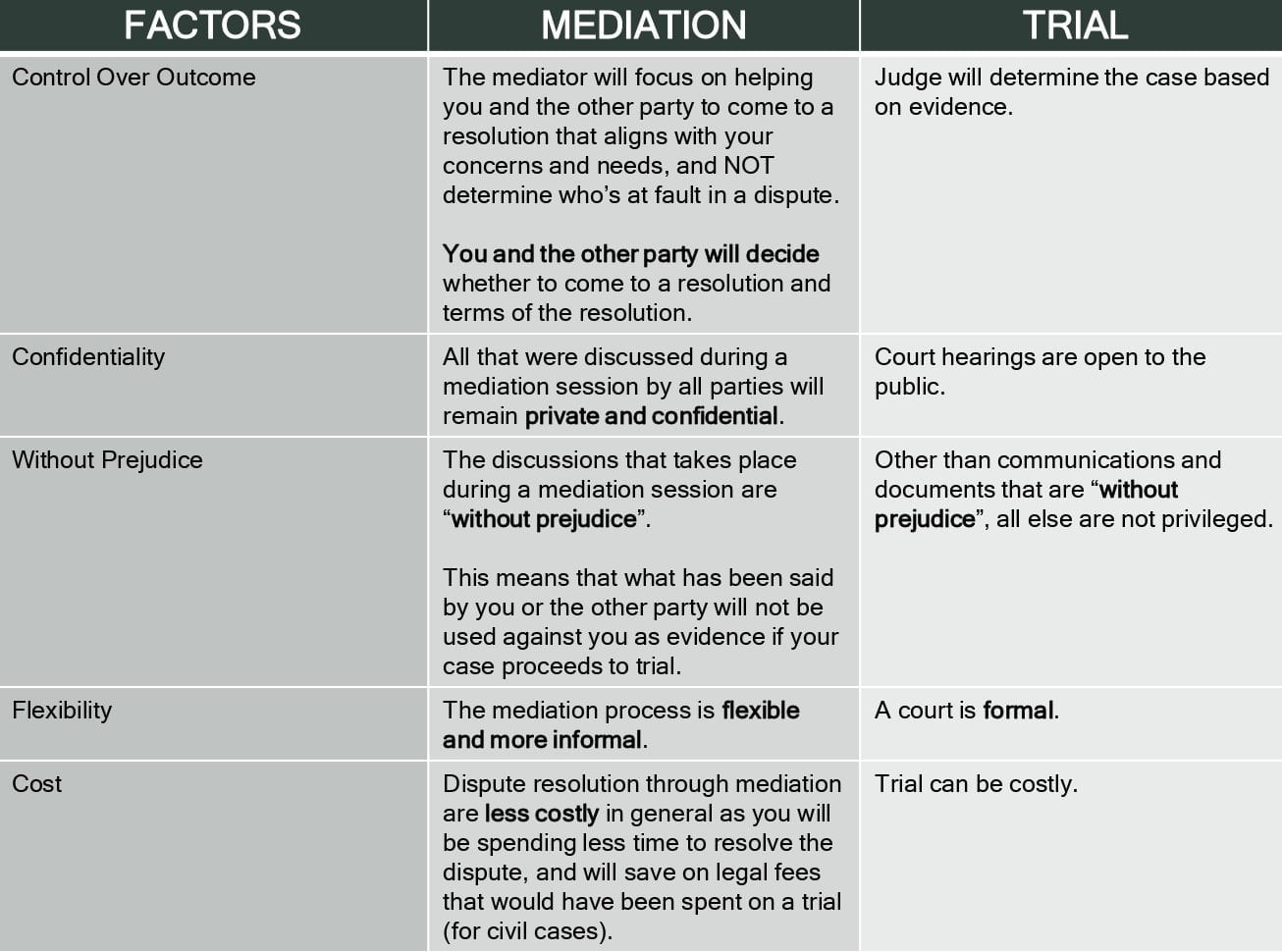




Commercial disputes happen when there are disagreements between business entities. Disagreements stem from a variety of situations such as:
To resolve commercial disputes, disputing parties can choose to resolve the disagreement through litigation in court or to settle out of court through alternative dispute methods such as mediation or arbitration, which offer confidentiality and is less confrontational as compared to litigation.

A table showing the difference between Mediation and Trial

Mediation is a voluntary and private process between two disputing parties facilitated by an independent and neutral party called a “mediator”. Mediators are accredited professionals trained to facilitate the resolution of conflicts between disputing parties.
In the process of mediation, the mediator simply facilitates the communication for both parties to reach a mutual agreement. The parties involved in mediation retain ultimate control over the decision of whether to settle the disagreement and on what terms.
When an agreement is reached, the terms are recorded and signed by the parties. This agreement will be legally recognised in court by virtue of the law of contract.
In Singapore, mediation can take place at designated dispute mediation service centres such as Singapore Mediation Centre (SMC) or at the Community Mediation Centre. The process of mediation can also be facilitated by law firms with lawyers who are accredited mediators.
A typical mediation session involves only the disputing parties and the mediator in a private session held in confidence. During this private session, the parties are provided with a safe space to voice out their issues and concerns, while the mediator facilitates and helps them reach a mutually agreeable solution.

In August 2019, a new treaty ‘Singapore Convention on Mediation’ was implemented to strengthen Singapore’s role as a global hub for cross-border commercial disputes.
Essentially this provides the opportunity for commercial disputes across different countries to be resolved with the help of a mediator in Singapore.
Every commercial dispute varies depending on circumstances. There are times where mediation may not be an appropriate mode of resolution.
Mediation in commercial disputes can be an ideal form of resolution when:

Using mediation to resolve commercial disputes may not be appropriate if you require the Court to make a decision on a legal issue such as interpreting a clause for your company’s standard contract or either party shows no desire to mediate.
If mediation is not feasible, arbitration can be a possible mode of resolution for commercial disputes.

Commercial disputes can potentially disrupt the operations of a business. While it is entirely up to the parties involved to decide the best approach to resolve their dispute, it is still recommended to consult an experienced commercial lawyer to effectively address the issue and prevent it from escalating further.
If you are involved in a commercial dispute and require expert legal advice and services, do feel free to contact us.
Credits:
Photos are taken from Freepik

We provide solutions to the table for all our clients regardless of the scale or complexity of the cases. Let us know how we can help.
Contact Us